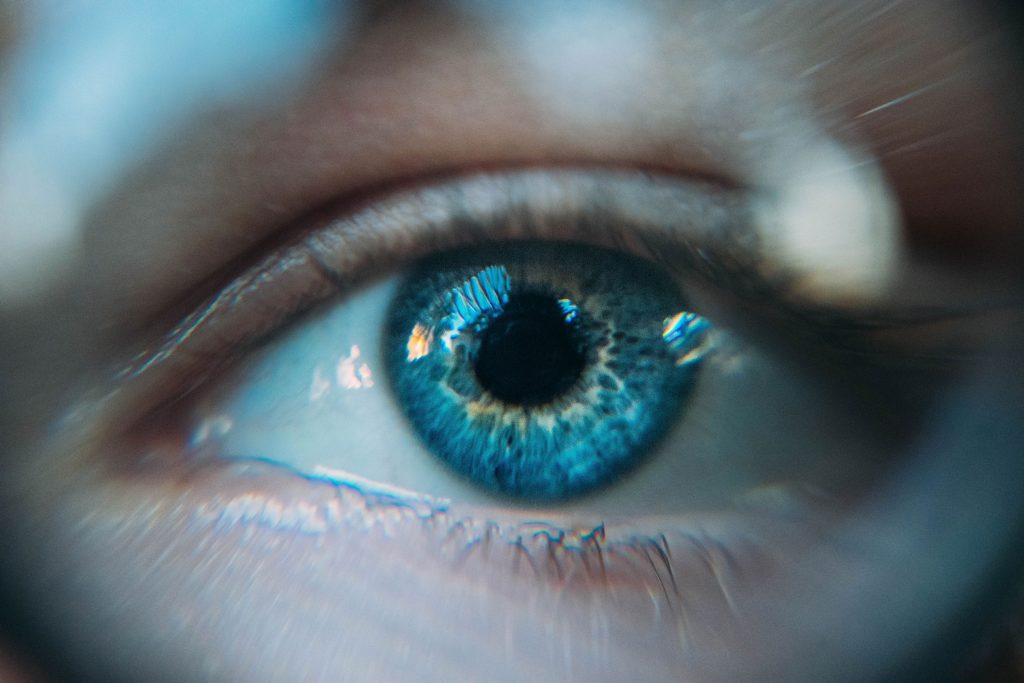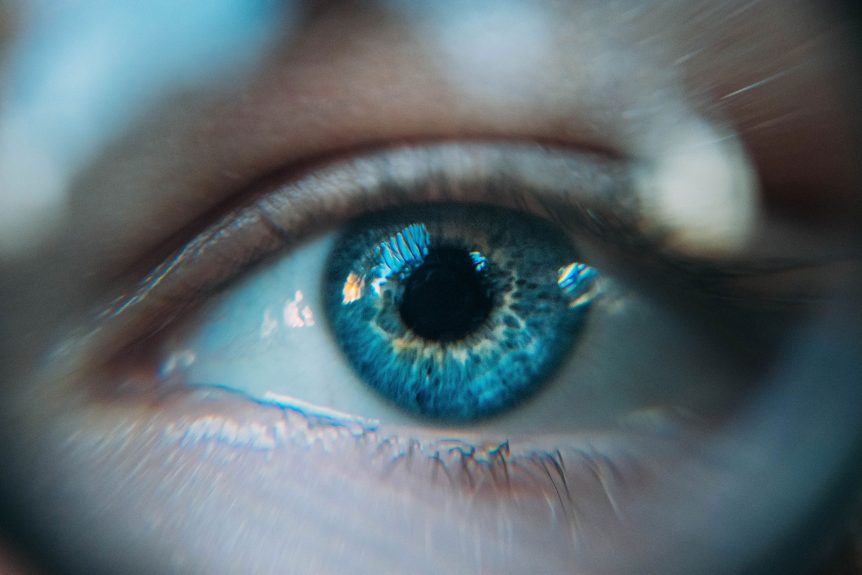
Sight is one of the most precious of our five senses and you need to be aware of any change that may happen. The sooner you notice and do something about it, the quicker it will be sorted and the more comfortable you will be. There are many reasons why our eyesight changes and the most important thing is to get any concerns checked out by a qualified eyecare specialist. Here are some of the most common reasons why your eyesight may be getting worse.
Age-related
You’ve probably noticed – or experienced – people of a certain age starting to hold things at arms’ length to read them. This is presbyopia, or long-sightedness, and will inevitably happen to us all at some point. It is caused when the crystalline lens in your eye becomes less flexible and therefore less able to focus on near items. Even if you have never worn glasses before you may still experience long sightedness.
The solution? Corrective glasses.
Eye conditions
There are several eye conditions that can lead to a deterioration in eyesight, and the two most common are cataracts and glaucoma. Cataracts are cloudy patches on the lens of your eye, making vision difficult. Whilst they can eventually lead to blindness if not treated, cataracts are very common and cataract removal is one of the most common surgeries in the UK. Should you start to notice any clouding of your vision, visit your optometrist as soon as you can.
Glaucoma, on the other hand, often doesn’t have any symptoms and it too can lead to sight loss. It is caused by a build-up of fluid, and consequently pressure, in the eye. Your optometrist will perform a simple glaucoma test during your routine check-up – it’s the puff of air in the eye test.
The solution? Keep all your optometrist appointments and make them regularly.
Lifestyle
Many lifestyle factors can affect our eyesight. Poor nutrition and too much alcohol cam leave your eyes dehydrated and simply not receiving the nourishment they need. Insufficient sleep doesn’t allow your eyes to rest and recover from the day’s activities. And smoking releases fumes that can lead to a speed up of eye damage.
The solution? Eat a varied diet (vitamin A is essential for good eye health), don’t regularly overdo your alcohol intake, get a consistent good night’s sleep and quit smoking.
Genetics
It’s true that some eye diseases are hereditary (such as glaucoma) and some conditions (such as short sightedness) can be too. If you have a family history of eye problems, always be sure to tell your optometrist. Certain ethnic groups may also be at a higher risk.
The solution? Be aware of your family’s eye history and share it with your eye care specialist, making sure you have appointments frequently.
Not protecting your eyes
Debris in the eye can be damaging as well as painful. If you have a job that involves any kind of loose material in the air, always wear protective goggles. UV light can also be a problem, causing eyesight issues just as it can cause skin issues.
The solution? Wear protective googles and always wear UV-protective sunglasses when it’s sunny.
Temporary changes
Not all changes to your eyesight are one-way. Some changes can be temporary, caused by fluctuating hormones. Puberty, pregnancy and menopause can all lead to a change in your eyes and eyesight.
The solution? Visit your optometrist if you notice a change to your eyesight during a period of hormonal change.
Excessive screen time
Many of us increased our screen time during lockdown and that hasn’t stopped. Excessive computer use, video calls, TV watching and gaming can all lead to a deterioration in your eyesight. You have control of this one, so be aware of how often you are using a screen.
The solution? Cut down on screen time and give your eyes a break – a good habit to get into is to look away from your screen for 20 seconds every 20 minutes.
Eye hygiene
Your eyes are delicate organs so please look after them and treat them with respect! If you are a contact lens wearer, this is especially important – always use clean hands to put lenses in and out. Try to avoid showering in contact lenses and NEVER sleep with them in. Even if you don’t wear contact lenses, be aware of how often you touch your eyes and try to avoid rubbing them.
The solution? Only touch your eyes when you have to and always with clean hands. And be extra aware if wearing contact lenses.
Your eyes work hard, day in, day out, and it pays to take good care of them. The single most important thing you can do when it comes to your eyes and eyesight is to make – and keep – regular appointments with your optometrist. Tell them immediately if you notice any change to your eyesight. If you have any concerns or questions about your vision, please pop in to see us or call us for advice.

